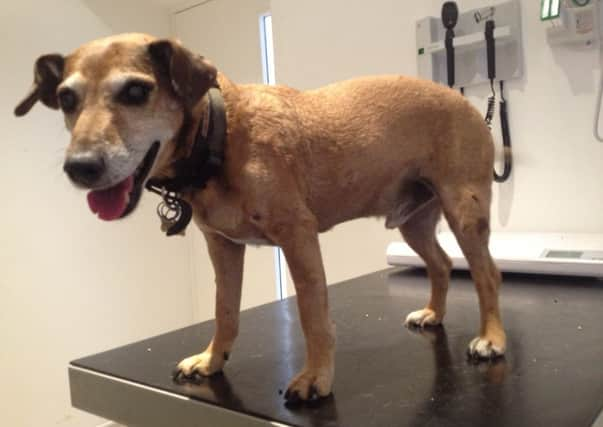At the Vets: Ways to alleviate your pet’s aches and pains of old age


During ageing less energy is used up, with fat deposits often increasing – the reason we see more fatty lumps on older dogs. Bodyweight may rise or fall, with skin often losing elasticity, having a less shiny coat, with white hairs on muzzle.
Old dogs often sleep longer. Muscles and bones aren’t as strong as when younger, and less effective immune systems making them less protected against common infections. Internal organs e.g. heart, liver and kidneys will all weaken with age too.
Advertisement
Hide AdAdvertisement
Hide AdHowever in the last few years we’ve enjoyed massive advances in vet treatments meaning safe long-term drugs are available helping reduce old age effects and keep our ageing dogs happy, exercising, and living longer healthier lives.
Always feed senior diet containing less calories, reducing weight gain, and take advantage of free weigh checks offered by your vet practice so there’s no excuse not to weigh your dog regularly, as weight loss/gain often indicates early signs of illness.
Common signs of old age (with common causes) include reduced appetite, stiff joints (arthritis) increased drinking (diabetes, liver/kidney failure), smelly breath, losing weight, as well as lumps or bumps, hair loss, cataracts, lethargy, exercise intolerance and increased tiredness (hypothyroidism), coughing, difficulty passing urine or faeces as well as urinary incontinence/leakage, becoming dull, disorientated or is having trouble with balance, or even smelly discharge from the vagina (pyometra). Cancer can also affect older dogs.
Ageing dogs suffering both bad teeth and infected gums will be uncomfortable and at high risk from serious infections spread in blood from mouth to potentially damage internal organs.Most owners find pets suffering from bad teeth are much happier and eat better after dentistry, so ask your vet for details as general anaesthetics for oldies are much safer nowadays.
Finally please don’t forget that older dogs still require regular boosters for vaccinations, plus flea and worming treatments too.
Visit www.GroveLodgeVets.co.uk